2025 Annual Convention
Celebrating Medical Marvels 99 Years & Beyond
Sioux Falls Convention Center
1201 North West AvenueSioux Falls, SD 57104
United States
Suit up, health care heroes! The 99th Annual Convention of the South Dakota Association of Healthcare Organizations (SDAHO) is assembling—and you are invited. For nearly a century, you've been the real-life superheroes of South Dakota's health care story, and this year, we're celebrating your incredible legacy and bold future.
With the theme Celebrating Medical Marvels – 99 Years & Beyond, we’ll spotlight the innovation, resilience, and heart that has shaped our healthcare community—and power us into the next chapter.
This action-packed event will unite champions from hospitals, nursing homes, home health, hospice, and assisted living organizations statewide. Expect powerful keynote speakers, thought-provoking education sessions, supercharged networking, and moments to recognize the extraordinary everyday work of our health care stars.
Whether you wear scrubs, suits, or capes, come ready to be inspired, recharged, and celebrated.
Together, let’s honor the past, elevate the present, and assemble for the future of health care!
Click here for available vendor opportunities.
Thank You To Our Event Sponsors

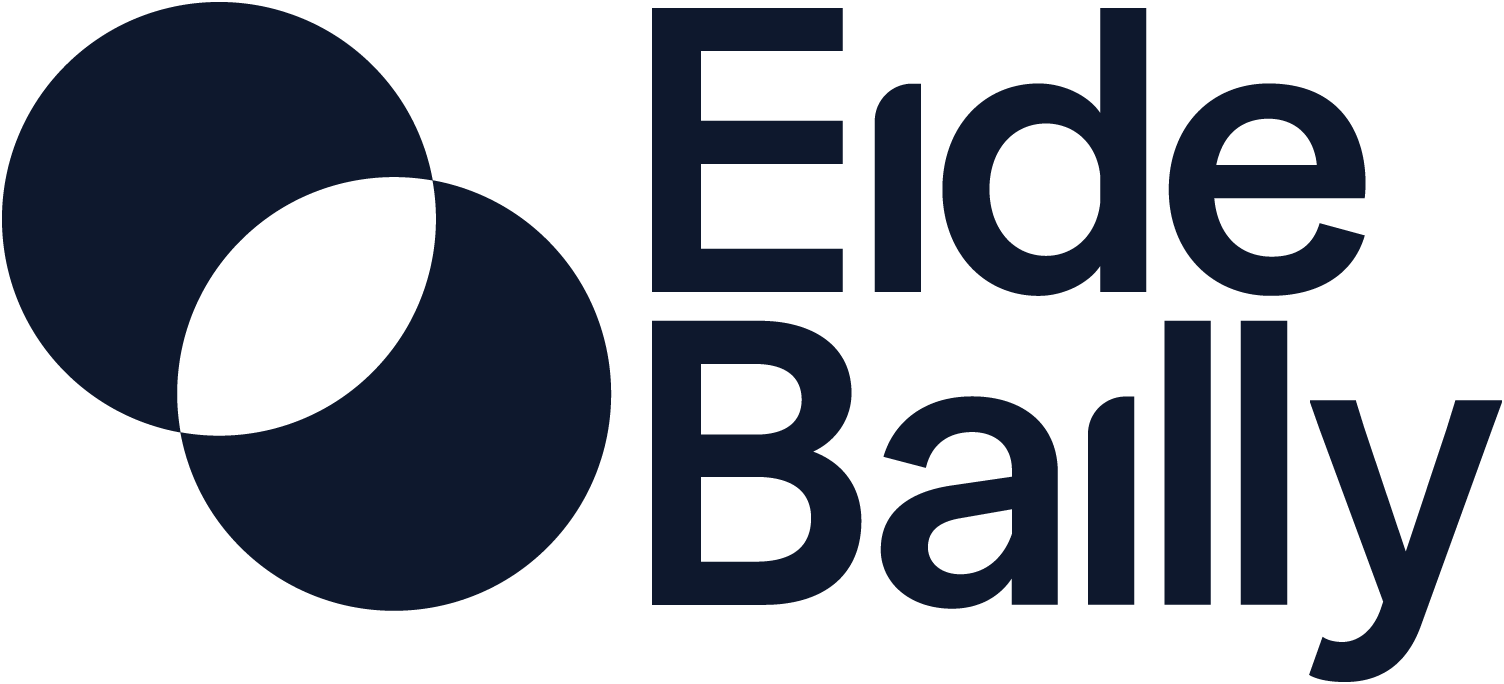


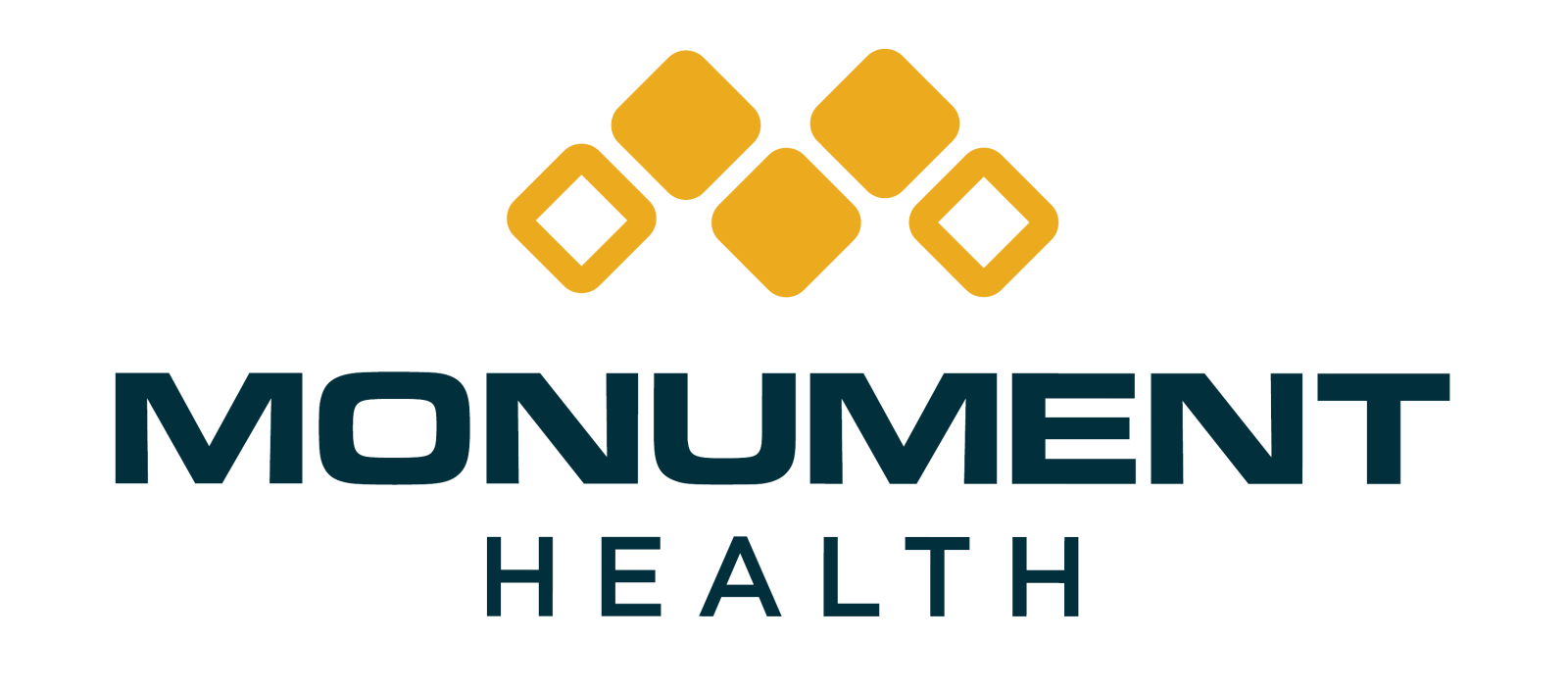

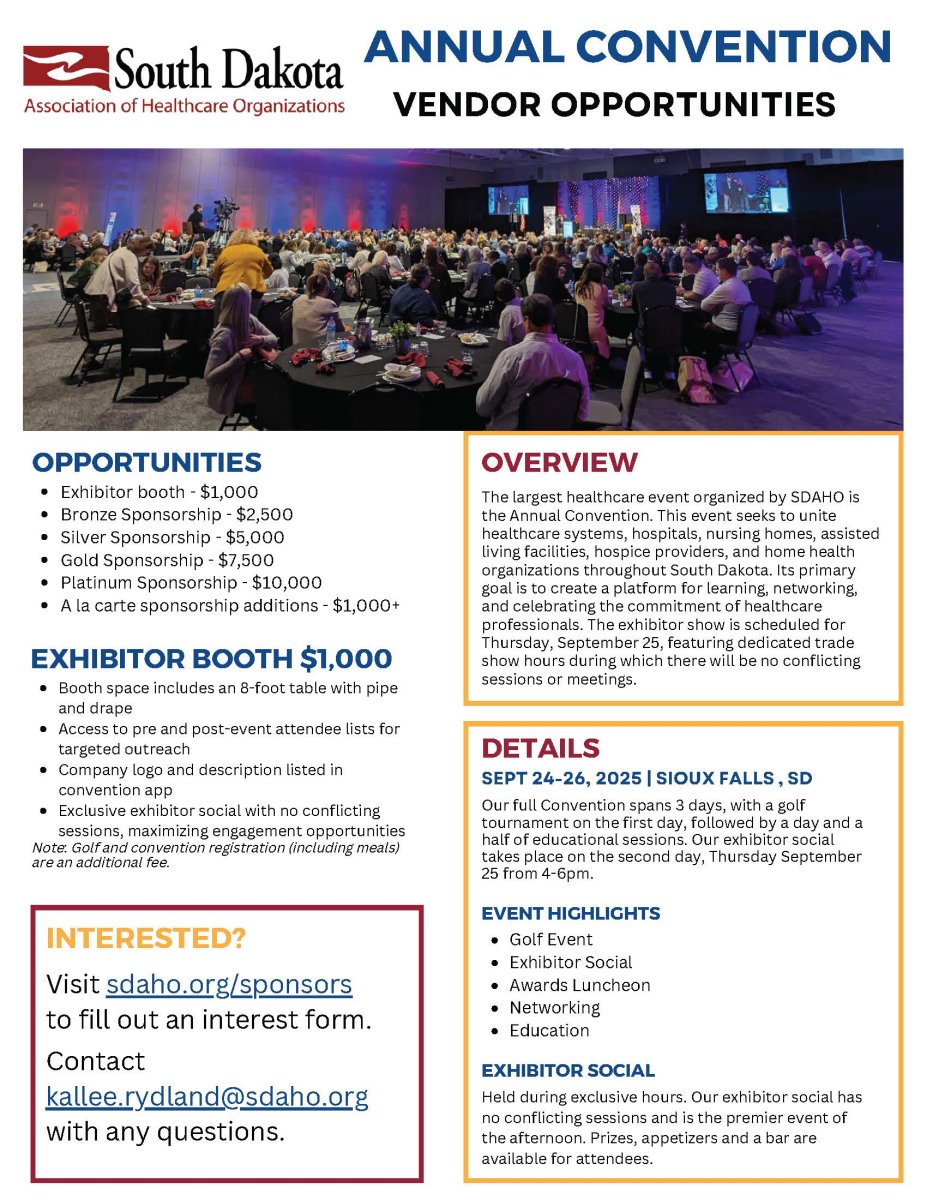
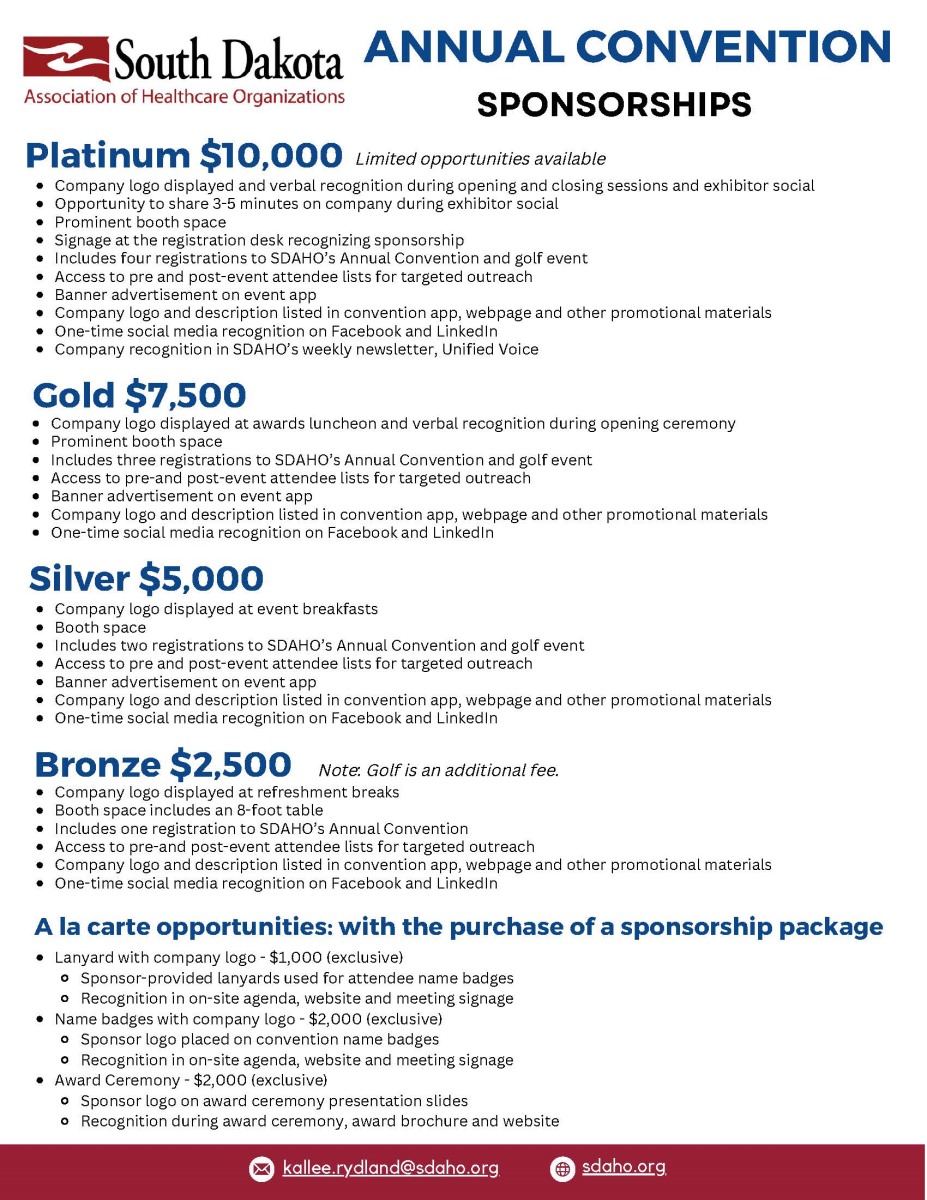
Stephen W. Trzeciak, MD, MPH
Opening Keynote: COMPASSIONOMICS: The Revolutionary Scientific Evidence That Caring Makes a Difference
Healthcare workers have always had an ethical imperative to treat patients with compassion, as a cornerstone of the “art” of medicine. But are there also evidence-based effects of compassion belonging in the science of medicine? In a two-year journey through the scientific literature, Dr. Trzeciak tested the hypothesis that compassion matters – for patients, for patient care, and for those who care for patients. Abundant research shows that compassion has measurable beneficial effects across a wide variety of patient conditions and moves patients to take better care of themselves. Numerous studies show that compassion is also associated with higher quality healthcare and lower costs of care.
Science supports that compassion is a powerful beneficial therapy for the giver, too. More caring, and the relationships that flow from that, can promote resilience in healthcare workers. Compassion can be protective against burnout, and for those already in the throes of burnout, compassion can be a vital antidote. Importantly, it’s not just compassion for patients, but compassion for each other (i.e., coworkers). Dr. Trzeciak will share his story of going through burnout, and how compassion was the key to his recovery. Your audience will gain new understanding that compassion matters (not only in meaningful ways, but also measurable ways) and new appreciation for the power that compassion holds.
Ryan Campbell
Closing Keynote: What's Your Pink Cadillac? The Transformational Power of Prioritizing Joy
Dive into the joy-fueled resilience hidden in our hobbies, interests, and simple pleasures. In a fast-paced world where our challenges are relentless and the solutions seem out of reach, Ryan delivers a message of accessible, attainable change. From the highs of a world record-breaking expedition to the most unimaginable low of a plane crash and paraplegic diagnosis, Ryan uses his story to highlight the realities of adversity and the role of resilience. A message built on the importance of mental health and self-care, What’s Your Pink Cadillac? uncovers the most unexpected, transformational tool discovered in the most unexpected place, the purchase of a 1960 Pink Cadillac. Get ready to smile like a kid, step back, and show up better.
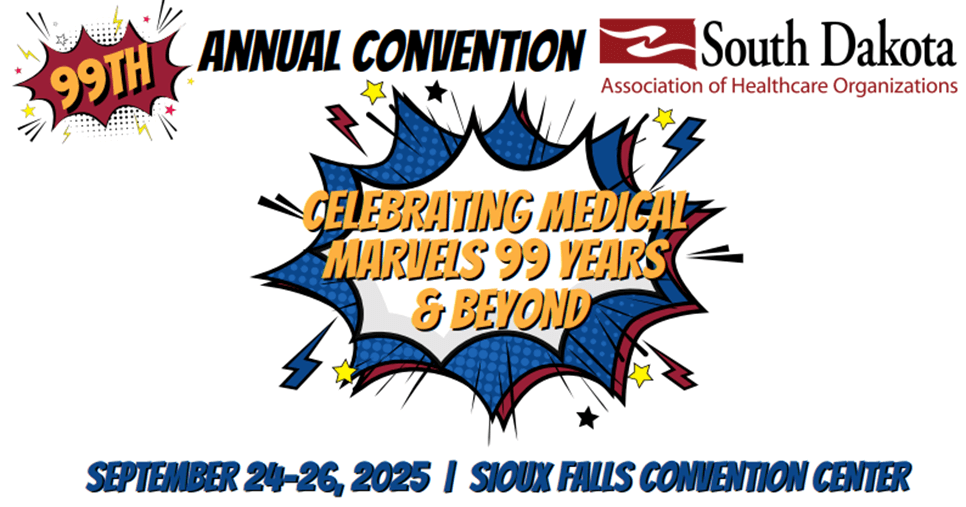
Thursday, September 25, 2025
8:00 am - 9:15 am
Welcome & Opening Keynote: Compassionomics: The Revolutionary Scientific Evidence That Caring Makes a Difference, Dr. Stephen Trzeciak, MD, MPH
Recent data reveals that healthcare is facing a compassion crisis—but does compassion truly make a difference? In this powerful session, Dr. Stephen Trzeciak shares insights from a two-year exploration of scientific literature testing the hypothesis that compassion matters—not just ethically, but clinically. Backed by abundant research, Dr. Trzeciak demonstrates how compassion improves patient outcomes, encourages better self-care, enhances healthcare quality, and reduces costs. Just as importantly, he reveals how compassion benefits caregivers themselves by fostering resilience, strengthening relationships, and serving as a protective factor—and even a remedy—for burnout. Through compelling evidence and his personal journey of recovery from burnout, Dr. Trzeciak offers a transformative perspective: compassion isn’t just a soft skill—it’s a powerful, measurable force for healing in healthcare. 1.2 CEs (LNHA, SW)
9:30 am - 10:30 am Breakout Sessions
It's Not About Birth Year: The Evolution of Employees from A to Gen Z, Alayna Thomas, Magnet Culture
Instead of fueling the “us versus them” fire on your team, it’s time to explore the “why” behind the unique mindsets of our multigenerational workforce. Understand how Baby Boomers, GenX, Millennials, and GenZ were raised differently and the impact of their upbringing on the employer-employee relationship. We will also dispel myths about younger workers’ perceived lack of professionalism and work ethic. Magnet Culture’s award-winning generational lens provides valuable insights to navigate key challenges and opportunities presented by today’s new workforce. It’s time to create a workplace that more effectively manages multi-generational teams, as one-size leadership styles no longer fit all. 1.2 CEs (LNHA, SW)
Who Should Attend: HR leaders, supervisors, department heads
Why Attend: Learn how generational mindsets shape work behaviors and how to engage every age group.
Practice Wisely and Save Hours Each Day, Dr. Marie Brown, American Medical Association
In today’s fast-paced healthcare environment, organizations face mounting pressure to optimize operations without compromising care quality or staff well-being. This highly practical session offers actionable strategies to streamline clinical and administrative workflows, implement time-saving processes, and enhance overall practice efficiency. Participants will explore how to identify and eliminate unnecessary complexity, especially when interpreting regulations—while supporting physician satisfaction and reducing burnout. Attendees will leave equipped with proven tactics to drive performance, foster a healthier work environment, and sustain operational success. 1.2 CEs (LNHA, SW)
Who Should Attend: Clinical teams, quality leaders, operations professionals
Why Attend: Learn time-saving strategies to improve care quality, reduce burnout, and enhance efficiency.
Charting the Future of Healthcare...While Traveling on the Same Road, Michelle Mader, Ankura
Healthcare is being reshaped by demographic shifts, financial pressures, technological disruption, and changing patient expectations—all converging to challenge legacy systems and demand bold new strategies. In this session, healthcare strategist Michelle Mader explores the current macroeconomic and operational forces facing hospitals and health systems, especially those in rural and underserved regions. Drawing on national trends and South Dakota-specific insights, this provocative session outlines how leaders can stabilize financial performance, drive value through standardization, and adapt to a shifting care delivery model without losing sight of access and equity. Attendees will leave with a candid view of the market—and a clear path forward. 1.2 CEs (LNHA)
Who Should Attend: Executives, administrators, financial leaders
Why Attend: Understand market trends shaping rural and community healthcare strategy.
.
Leadership Courage Through Curiosity, Angela Schoffelman, Avera McKennan Hospital
Curiosity is more than a trait—it’s a powerful tool for transformation in both life and leadership. In this engaging and reflective session, Angela invites participants into a storytelling journey that encourages bold self-examination and growth. Through real-life narratives and interactive moments, attendees will be challenged to explore their current roles with fresh eyes, identify areas where curiosity can lead to courageous action, and embrace discomfort as a path to personal and professional expansion. 1.2 CEs (LNHA, SW)
Who Should Attend: All leaders and aspiring leaders
Why Attend: Discover how curiosity fosters resilience and courageous leadership.
Governance 101: Getting the Fundamentals Right, Todd Linden, Linden Consulting
The most successful healthcare organizations are guided by strong, high-performing boards—and it all begins with mastering the fundamentals. In this essential session, Todd provides a practical roadmap to help both new and seasoned board members strengthen their understanding of core responsibilities. From the foundational duties of care, loyalty, and obedience to the true meaning of fiduciary responsibility, attendees will gain the knowledge and confidence needed to support effective, ethical governance. Whether you're looking to reinforce your board’s effectiveness or establish a strong foundation for future success, this session is your starting point. 1.2 CEs (LNHA)
Who Should Attend: Board members, CEOs, and executive leaders
Why Attend: Strengthen foundational governance skills and better understand roles, duties, and responsibilities.
Protecting Healthcare Integrity: Insights from the South Dakota Medicaid Fraud Control Unit & DSS, Stephen Gemar & Secretary Matt Althoff
The South Dakota Medicaid Fraud Control Unit (SD MFCU) will provide an overview of key healthcare issues related to provider fraud, abuse and neglect, financial exploitation, and the OIG Exclusion List. The session will highlight real-world case studies involving physicians, hospitals, post-acute care providers, and other federally funded facilities to illustrate how fraud and abuse can occur—and how it’s addressed. Additionally, the Department of Social Services (DSS) will discuss its preventative and detective role in identifying and correcting issues early—before they escalate to the MFCU—helping to safeguard program integrity from the outset. 1.2 CEs (LNHA, SW)
Who Should Attend: Healthcare leaders, compliance officers, finance and billing staff, and risk management professionals
Why Attend: Gain practical insights to prevent, detect, and address fraud, abuse, and neglect while protecting program integrity in federally funded healthcare organizations.
10:30 am - 12:00 pm Breakout Sessions
Population Health Management: Access, Outcomes, and Financial Implications, Teri Jacobs, Avera Health, Dr. David Basel, Avera Health, Lindsay Daniels, Sanford Health, Kate Klefstad, University of Iowa
As reimbursements shift from volume based to value-based, healthcare organizations are becoming more responsible for providing the resources necessary to meet the needs of a given population. Aligning quality of care with the appropriate level of care and services becomes pertinent to healthcare organizations’ bottom line. It is imperative for healthcare leaders to develop programs that offer underserved communities an opportunity for a healthier tomorrow. Several pioneer organizations have developed population health improvement models such as Accountable Care Organizations that force them to take responsibility for the beneficiaries they are serving. As the acuity of care increases, healthcare leaders must coordinate equitable care and properly address social determinants of health. The focus is no longer treating patients, but proactively keeping patients out of the acute healthcare setting and providing care in the community. Developing population health management into a tangible measure continues to be a challenge for all healthcare organizations across the country. How to properly reduce costs while improving the quality and access of care in communities that lack the resources and education to care for themselves and prevent acute health issues and substantive chronic disease continues to be a major hurdle in population health adoption. 1.8 CEs (LNHA, SW)
Who Should Attend: Executives, financial planners, clinical leaders
Why Attend: Explore how population health models can reduce costs and improve community outcomes.
10:45 am - 11:45 am Breakout Sessions
.
Workforce Wake-Up Call: It's Time to Recalibrate Our Work World, Alayna Thomas, Magnet Culture
Finding and keeping lasting talent is more challenging than ever, as the employer-employee relationship has drastically shifted from the era of lifelong pensions. While turnover can be reduced, it can't be eliminated—making staffing challenges and their financial impact a long-term reality. Organizations have reached a tipping point where asking employees to “do more with less” is no longer sustainable, and bold changes are required to meet goals and expectations. Many industries still rely on outdated practices, but leaders have the power to recalibrate toward a more sustainable model that balances operational needs with workforce well-being. Join us to explore Magnet Culture’s new guide to navigating unavoidable turnover and retaining the talent we can’t afford to lose by building a workplace where people want to stay. 1.2 CEs (LNHA)
Who Should Attend: HR leaders, executives, hiring managers
Why Attend: Discover actionable strategies to retain staff and recalibrate for a more sustainable workforce.
Recovering Out Loud: Breaking Stigma and Saving Lives, Dr. Melissa Dittberner, Straight Up Care
In this powerful and personal session, Dr. Melissa “Mo” Dittberner shares her lived experience as a person in long-term recovery and her journey from addiction to advocacy. Through storytelling and evidence-informed strategies, Dr. Mo explores how stigma impacts individuals with substance use disorders and offers practical tools for shifting language, perceptions, and community responses. The session also highlights overdose prevention approaches, including harm reduction practices and the role of peer support in saving lives. This talk is both an invitation and a call to action—for professionals and community members alike—to become champions of recovery and compassion. 1.2 CEs (LNHA, SW)
Who Should Attend: Clinical teams, leadership, community health advocates
Why Attend: Understand stigma's impact and learn how recovery-informed care saves lives.
Washington Update: Legislation, Regulations, and Executive Actions, Martie Ross, PYA
New healthcare-related legislation, regulations, and executive actions have been released at a dizzying rate in 2025. This session, led by a seasoned regulatory expert, will break down the latest federal policy changes impacting healthcare organizations. You’ll hear about Medicare payment updates, new compliance requirements, and shifts in reimbursement methodologies. With a look at obstacles and opportunities ahead——you’ll gain actionable insights and practical strategies to help navigate what the future may bring. 1.2 CEs (LNHA)
Who Should Attend: Policy leaders, compliance teams, administrators
Why Attend: Stay informed about key federal updates impacting rural and community healthcare.
Strategic Planning for Aging Services: A Roadmap for Managing Your Own Approach, Andy Edeburn, Elder Dynamics
For many aging services organizations, thinking about what’s next and where we go from here is on a lot of minds. Strategic planning has once again emerged as a vehicle to consider these questions and others. But what really is strategic planning and how do we do it? This session will discuss the role of strategic planning for aging services organizations, why it is essential and important, and how to actually start, lead, and accomplish a strategic planning process. We’ll consider an overall approach in three broad steps, the roles of governance and leadership in the process, techniques and best practices along the way, and how to translate future aspiration into practical action. By the end of this session, participants should feel armed with an approach, tools, and resources to guide their own planning process. 1.2 CEs (LNHA, SW)
Who Should Attend: Post-Acute leaders, governance teams, strategic planners
Why Attend: Gain tools and a roadmap to lead meaningful, actionable strategic plans.
Sustainable Rural Health Through Digital Innovation and Partnerships, Jennifer Stoll, OCHIN
This session will address the critical healthcare challenges facing rural and frontier communities through cutting- edge digital innovation, strategic partnerships, and transformative technology solutions. Participants will explore emerging healthcare technologies, examine successful implementation models, and develop actionable strategies to foster innovation within their organizations while improving health outcomes in low resource and rural areas. 1.2 CEs (LNHA)
Who Should Attend: Rural health leaders, IT and innovation teams
Why Attend: See how digital transformation is driving better health outcomes in underserved areas.
Optimizing the Board and CEO Relationship - It's a Partnership, Todd Linden, Linden Consulting
In the pursuit of exceptional organizational performance, the vital partnership between the board and the CEO stands at the forefront. With CEO turnover at record levels, it is imperative to cultivate a relationship characterized by trust, transparency, mutual understanding, and a well-defined strategic approach. Since the currency of the relationship exists in the boardroom, this session also will focus on tips and best practices for great meetings. 1.2 CEs (LNHA)
Who Should Attend: Executives and board members
Why Attend: Strengthen board-CEO relationships with tools for transparency and accountability.
1:30 pm – 2:30 pm Breakout Sessions
Design, Develop, Deliver: A Blueprint for a Thriving Healthcare Culture, Mary Sand, Sand Consulting, LLC
A thriving organizational culture doesn’t happen by chance—it happens by design. In this interactive session, healthcare leaders will explore how culture shapes organizational performance and the success of high-performing teams. Gain insight into the key questions that drive an effective culture design process, the critical details that demand attention, and the pivotal decisions that create lasting impact. Walk away with a practical blueprint to design, develop, and deliver a culture where teams thrive and excellence becomes the norm. 1.2 CEs (LNHA, SW)
Who Should Attend: HR leaders, administrators, department heads
Why Attend: Learn a practical blueprint to design high-performing, value-driven cultures.
Artificial Intelligence in Medicine: Embracing a New Reality, Rebecca Vandekop, MD, Avera
Artificial intelligence (AI) is no longer just in the future—it is transforming healthcare today. This session offers an introduction to AI for healthcare professionals. Attendees will explore how AI is being applied across clinical, operational, and patient-facing domains, with a special focus on how these technologies can improve the quality of care. Real-world examples will illustrate how AI enhances diagnostic accuracy, streamlines workflows, and supports better patient outcomes. The session will also address the critical role of governance in ensuring safe, ethical, and effective use of AI in healthcare settings. Attendees will leave with a foundational understanding of AI, its impact on clinical practice, and key considerations for responsible implementation. 1.2 CEs (LNHA)
Who Should Attend: Clinicians, IT staff, innovation teams
Why Attend: Understand how AI is enhancing diagnostics, workflows, and patient care.
Turning Data into Action: Optimizing Healthcare Operations and Strategy, Traci Rabine, Eide Bailly & Meredyth Lacombe, Eide Bailly
In today’s environment of financial strain, workforce shortages, and shifting patient needs, healthcare leaders must use data to guide strategic and operational decisions. This session will show how to leverage key data sources—such as market analysis, labor benchmarks, and price transparency data—to improve service line planning, operational efficiency, and financial sustainability. Through real-world examples, participants will gain actionable strategies to align services with demand, stay competitive, and drive long-term success. 1.2 CEs (LNHA)
Who Should Attend: CFOs, financial leaders, analysts, operational leaders
Why Attend: Learn how to use data for strategic decisions, efficiency, and long-term sustainability.
When Walking Away Isn't an Option: Real-World De-escalation Strategies for Dementia Care, Jill Weisensel, Atlas Training and Consulting
In dementia care, walking away isn’t always an option—especially when safety, dignity, and duty of care are on the line. This fast-paced session equips frontline professionals with practical strategies for recognizing escalating behavior, using non-threatening communication and body language, and de-escalating tense interactions in real time. Grounded in real-world scenarios, participants will leave with actionable tools they can use immediately—no buzzwords, just what works. 1.2 CEs (LNHA, SW)
Who Should Attend: Post-acute, memory care, clinical, and direct care staff
Why Attend: Gain practical de-escalation tools for managing challenging behaviors in dementia care.
Streamlining Your Information Governance Efforts with an Information Governance Framework, Patti Brooks, Dakota State University & Renae Spohn, Dakota State University
This session provides the learner with insights on how to navigate information governance in today's highly technical environment by providing examples of governance frameworks, risks to manage, AI governance needs and resources, and provide the learner with real life examples of potential threats. 1.2 CEs (LNHA)
Who Should Attend: IT leaders, compliance officers
Why Attend: Learn practical strategies to manage data, reduce risk, and prepare for AI governance.
2:30 pm – 4:00 pm Breakout Sessions
Leading a Culture of Safety: A Blueprint for Success, Mick Gibbs, Avera Heart Hospital, Dr. Joel Segeleon, Sanford Health, Kelli Fischer, Avera St. Luke's Hospital
To help healthcare leaders achieve total system safety across the continuum, ACHE, and the Institute for Healthcare Improvement/National Patient Safety Foundation Lucian Leape Institute developed a guide “Leading a Culture of Safety: A Blueprint for Success”. This Blueprint is designed to help leaders shape, create and sustain the type of organizational culture needed to ensure patient and workforce safety and inspire healthcare leaders on the journey to zero harm. This discussion will focus on the six critical domains to develop and sustain a culture of safety. 1.8 CEs (LNHA, SW)
Who Should Attend: Leaders, clinical teams, and quality officers
Why Attend: Explore a framework for building and sustaining a system-wide culture of safety.
2:45 pm – 3:45 pm Breakout Sessions
Navigating Legal and Safety Challenges in Healthcare, Blayne Hagen, Sanford Health, Paula McInerney-Hall, Monument Health, Dan Rafferty, Avera Health
Healthcare providers are increasingly navigating complex situations that carry both legal and safety implications. This panel discussion will address timely and critical issues including interactions with law enforcement, managing difficult or aggressive patients, and understanding the legal framework surrounding mental health holds. Panelists will share insights, best practices, and real-world examples to help attendees mitigate risk, ensure patient and staff safety, and remain compliant with applicable laws and regulations. 1.2 CEs (LNHA, SW)
Who Should Attend: Healthcare providers, administrators, compliance officers, and anyone involved in patient care or healthcare facility operations.
Why Attend: To gain practical insights and strategies for managing legal and safety challenges in healthcare, protecting patients and staff, and ensuring compliance.
"Courageous Conversations: When and How to Refer for Mental Health Support" Strategies for Healthcare Leaders to Take Timely, Supportive Action, Mary Wolf, Veritee Partners
As a counselor, executive coach, and former EAP director who has supported hundreds of healthcare professionals, I’ve seen the costs of waiting too long. Fear, stigma, and lack of experience often cause leaders to delay critical conversations and miss the window where intervention could have made all the difference. This session equips healthcare administrators, leaders and colleagues with the confidence, language, and strategy to act early. You’ll learn how to recognize red flags, initiate referral conversations that actually lead to follow-through. It’s paramount to access the right level of support whether it’s coaching, counseling, or a well-being program. Early intervention protects your people, your culture, and your bottom line. Let’s normalize help-seeking and lead with courage. 1.2 CEs (LNHA, SW)
Who Should Attend: Leadership, HR, and department heads
Why Attend: Equip yourself with tools to recognize and respond to mental health needs in staff.
Investing in Health: The Community Benefits of Antibiotic Stewardship in South Dakota, Cheri Fast, South Dakota Department of Health, Dr. James Keegan and Randee Mason, Keegan Mason & Associates
This presentation will explore how antibiotic stewardship can be effectively advanced through a combination of clinical practice, disease reporting, and collaboration with public health programs. Clinicians will learn about the Healthcare-Associated Infections Program at the South Dakota Department of Health, the available resources, and the reportable diseases relevant to stewardship. The session will discuss how effective antibiotic stewardship preserves antibiotic efficacy for the community, strategies for enhancing stewardship efforts and improving patient outcomes with Keegan Mason and Associates. Additionally, attendees will be introduced to the Antibiotic Stewardship State Workgroup, with details on how to sign up and get involved in shaping statewide stewardship initiatives and fostering a culture of collaboration. 1.2 CEs (LNHA, SW)
Who Should Attend: Clinical teams, public health professionals
Why Attend: Advance stewardship efforts to preserve antibiotic effectiveness and improve outcomes.
Strategies for Managing Unconscious Bias in Health Care, Faith Minnich Kjesbos, Avera Health
Everyone has bias – it’s part of being human. What is bias and what do we do when bias shows up in our work? This interactive session will explore unconscious bias, why it matters, and how it can impact the delivery of quality health care. Participants will practice research-based strategies to manage unconscious bias. 1.2 CEs (LNHA, SW)
Who Should Attend: Clinical staff, HR teams, DEI leaders
Why Attend: Practice actionable tools for recognizing and addressing bias in healthcare settings.
Value-Based Purchasing in South Dakota LTC - Winning or Losing by 2%, Jolene Johnson, Luminate Healthcare Consulting, Hai Le, SimpleLTC
With 2% of Medicare payments at risk, South Dakota SNFs must understand and adapt to the evolving Value-Based Purchasing (VBP) program. This session covers FY 2025 updates—including new staffing and infection measures—and how they impact rural facilities. Learn to analyze state-specific risks, leverage PBJ and MDS data, and apply practical tools to improve outcomes and earn back incentive payments. 1.2 CEs (LNHA, SW)
Who Should Attend: Nursing home administrators, DONs, MDS coordinators, compliance officers, and anyone responsible for quality metrics, staffing data, or reimbursement strategy.
Why Attend: Understand key Value-Based Purchasing changes, their impact on your facility, and how to boost Medicare revenue with strategies tailored to South Dakota's long-term care challenges.
Friday, September 26
8:30 am – 9:30 am Breakout Sessions
Protect and Defend 340B in South Dakota's Communities, Jessica Larsen-Gallup, Avera Health; Scott Peterson, Monument Health; Martha LeClerc, Sanford Health; Lee Cordell, Mobridge Regional Hospital & Clinics; & Lori Schilling, SUNRx
The 340B Drug Pricing Program plays a vital role in helping South Dakota’s hospitals and clinics stretch scarce resources, expand access to care, and support vulnerable patient populations. Yet, the program continues to face mounting regulatory and political challenges that threaten its sustainability. This session will explore the current landscape of the 340B program, highlight its impact on South Dakota communities, and outline strategies for healthcare leaders to advocate for its protection. Join us to learn how you can help defend this critical program and ensure it remains a lifeline for rural and underserved patients across the state. 1.2 CEs (LNHA)
Who Should Attend: Financial leaders, administrators, policy makers, and pharmacists
Why Attend: Learn about the status and strategic defense of the 340B program in rural healthcare.
Reimagining the Healthcare Workforce: Building Teams Within, Heidi Wirtjes, Lake Area Tech; Pam Hilber, PhD, Avera; Jamie Stucky, Sanford Health; Jamie Hower, Monument Health; & Brooke Sydow, Huron Regional Medical Center
Discover how South Dakota’s healthcare systems and technical colleges are transforming workforce development from within. This dynamic panel will explore innovative, in-house training and professional development programs designed to address workforce shortages and support career advancement. From Rad Technical Training to Nuclear Medicine, Pharmacy Technician opportunities, Medication Aide training to language support and apprenticeship pathways, learn how organizations are investing in their teams and building the next generation of health care professionals. 1.2 CEs (LNHA, SW)
Who Should Attend: Healthcare leaders, human resources professionals, workforce development coordinators, educators, and frontline managers
Why Attend: Attend to discover proven, in-house training and development strategies that effectively address workforce shortages and build a stronger, skilled healthcare team from within.
Helping Food Insecurity Through Wellness Pantries, Lindsay Weber, Avera St. Benedict Hospital & Lindsey Meyers, Avera Health
Food insecurity is a growing public health concern that directly impacts patient outcomes, especially in underserved and rural communities. This session will explore the connection between food access and health, highlighting how wellness pantries can serve as a powerful intervention to improve overall well-being. Presenters will share real-world insights, including the logistics of launching a wellness pantry, challenges faced, and key lessons learned. Attendees will leave with a deeper understanding of how to implement similar initiatives in their own organizations to support healthier communities. 1.2 CEs (LNHA, SW)
Who Should Attend: Community health professionals, administrators, clinical teams
Why Attend: Discover how wellness pantries reduce food insecurity and improve public health outcomes.
Medicaid Eligibility Explained, Kristin McNeely, South Dakota Department of Social Services
This session will provide an overview of the South Dakota Medicaid coverage groups and programs, general eligibility criteria, the application and renewal process, facility cost shares and Medicare Savings Programs. 1.2 CEs (LNHA, SW)
Who Should Attend: Administrators, billing staff, post-acute care leaders
Why Attend: Understand eligibility rules, cost shares, and program details that affect your bottom line.
.
9:45 am – 10:45 am Breakout Sessions
Understanding and Managing Urinary Tract Infections (UTIs) "Gold Cup", Molly Andersen, Fall River Health Services & Renee Cooper, Fall River Health Services
Urinary Tract Infections (UTIs) are among the most common infections across all age groups, with elderly nursing home residents being particularly vulnerable. This educational session provides healthcare professionals with a comprehensive overview of UTI recognition, diagnosis, and management, with a focus on long-term care settings. Topics will include identifying signs and symptoms, understanding risk factors, utilizing appropriate diagnostic procedures, and implementing prevention strategies. Special emphasis will be placed on evidence-based, non-antibiotic interventions and effective staff education. Attendees will leave equipped with practical knowledge to improve clinical outcomes and reduce UTI-related complications in their care environments. 1.2 CEs (LNHA, SW)
Who Should Attend: Clinical professionals, quality
Why Attend: Improve infection recognition and prevention strategies using evidence-based tools.
Our Journey to Becoming SD's First Rural Emergency Hospital, Melissa Gale, Landmann Jungman Memorial Hospital, Avera
This session will take attendees through one organization’s real-world journey to becoming a Rural Emergency Hospital (REH). From initial considerations and strategic planning to implementation and lessons learned, presenters will share key insights, challenges, and successes along the way. Join us to explore what it takes to transition to the REH model and how it can help preserve critical services in rural communities. 1.2 CEs (LNHA)
Who Should Attend: Rural healthcare leaders, hospital administrators, and strategic planners.
Why Attend: Learn key steps, challenges, and successes from the first South Dakota hospital’s transition to the Rural Emergency Hospital model to sustain vital rural services.
Innovations in Rural Health Care, David Newman, MD, Sanford Health
This session will explore how Sanford Health is transforming rural health care delivery through innovation. From expanding access with virtual care to enhancing clinical decision-making through AI, Sanford is using technology to meet patients where they are—no matter where they live—and support providers in delivering high-quality, timely care. Learn how these solutions are helping close gaps in access, strengthen the rural health care workforce and improve outcomes for the communities Sanford serves. 1.2 CEs (LNHA, SW)
Who Should Attend: Rural clinicians, administrators, and care model innovators
Why Attend: Learn how tech and partnerships are transforming rural health delivery.
Drug Diversion in Healthcare: What You Need to Know, Dana Darger, Monument Health, Paula McInerney-Hall, Monument Health & Pat Kneip, SD Division of Criminal Investigation
Drug diversion in healthcare is a serious concern, with experts estimating that 10-15% of healthcare workers may divert drugs at some point in their careers. This session will explore the "how" and "why" behind drug diversion, equipping attendees with the knowledge to recognize the signs of diversion and understand the legal implications once it's identified. We'll discuss solutions, including strong policies, robust monitoring systems, comprehensive education, and essential support for staff, all while emphasizing the paramount importance of patient safety. Learn how drug diversion can lead to inadequate pain relief, exposure to infection, and substandard care for patients, as well as significant risks for healthcare workers, including financial penalties, loss of reputation, and potential loss of licensure or employment. 1.2 CEs (LNHA, SW)
Who Should Attend: Healthcare leaders, compliance officers, nursing staff, pharmacy teams, and HR professionals
Why Attend: Learn how to identify, prevent, and respond to drug diversion to protect patients, staff, and your organization from serious clinical, legal, and operational risks.
Behavioral Health Consulting for Skilled Nursing Facilities & Assisted Living, Amelia Henderson, South Dakota Human Services Center - Geriatric Program
Having difficulty meeting the behavioral health needs of a resident? Our interdisciplinary team can help! This session will provide an overview of free services provided by the SD Human Services Center to help skilled nursing facilities and assisted living communities meet the behavioral health needs of their residents and prevent psychiatric hospitalization. 1.2 CEs (LNHA, SW)
Who Should Attend: Skilled nursing and assisted living staff, administrators, and care teams.
Why Attend: Learn how to access free support from the South Dakota Human Services Center to manage resident behavioral health needs and reduce psychiatric hospitalizations.
11:00 am – 12:00 pm
Closing Keynote
What’s Your Pink Cadillac? The Transformational Power of Prioritizing Joy, Ryan Campbell
Dive into the joy-fueled resilience hidden in our hobbies, interests, and simple pleasures. In a fast-paced world where our challenges are relentless and the solutions seem out of reach, Ryan delivers a message of accessible, attainable change. From the highs of a world record-breaking expedition to the most unimaginable low of a plane crash and paraplegic diagnosis, Ryan uses his story to highlight the realities of adversity and the role of resilience. A message built on the importance of mental health and self-care, What’s Your Pink Cadillac? uncovers the most unexpected, transformational tool discovered in the most unexpected place, the purchase of a 1960 Pink Cadillac. Get ready to smile like a kid, step back, and show up better. 1.2 CEs (LNHA, SW)
Attendee Registration
Registration includes Thursday & Friday Breakfast, snacks, beverages and Awards Luncheon on Thursday
| Price | |
|---|---|
|
Member Registration
Registration Ended 9/23/25 at 11:59 AM CDT
|
$250.00 |
|
Non-Member Registration
Registration Ended 9/22/25 at 12:59 PM CDT
|
$375.00 |
|
Awards Luncheon Ticket (Non-Conference Attendee)
|
$40.00 |
| Price | |
|---|---|
|
Annual Convention Platinum Sponsor
Registration Ended 8/29/25 at 11:59 PM CDT
|
$10,000.00 |
|
Annual Convention Gold Sponsor
Registration Ended 8/29/25 at 11:59 PM CDT
|
$7,500.00 |
|
Annual Convention Silver Sponsor
Registration Ended 8/29/25 at 11:59 PM CDT
|
$5,000.00 |
|
Annual Convention Bronze Sponsor
Registration Ended 8/29/25 at 11:59 PM CDT
|
$2,500.00 |
A la Carte Sponsorships
Must add a sponsorship package to your cart to unlock these.
| Price | |
|---|---|
|
Annual Convention Lanyard Sponsor (Exclusive)
Registration Ended 8/29/25 at 11:59 PM CDT
|
$1,000.00 |
|
Annual Convention Name Badge Sponsor (Exclusive)
Registration Ended 8/29/25 at 11:59 PM CDT
|
$2,000.00 |
|
Annual Convention Awards Sponsor (Exclusive)
Registration Ended 8/29/25 at 11:59 PM CDT
|
$2,000.00 |
| Price | |
|---|---|
|
2025 Annual Convention Exhibitor Booth
Registration Ended 9/12/25 at 11:59 PM CDT
|
$1,000.00 |
Agenda
| September 24 | |
| 12:00 PM - 5:00 PM | Golf Event & Social Elmwood Golf Course |
| September 25 | |
| 8:00 AM - 9:15 AM | Welcome & Opening Keynote: Compassionomics: The Revoluntionary Scientific Evidence that Caring Makes a Difference |
| 9:00 AM - 2:30 PM | SDHFMA Sponsored Blood Drive Details |
| 9:30 AM - 10:30 AM | Breakout Sessions |
| 10:45 AM - 11:45 AM | Breakout Sessions |
| 12:00 PM - 1:15 PM | Awards Luncheon |
| 1:30 PM - 2:30 PM | Breakout Sessions |
| 2:45 PM - 3:45 PM | Breakout Sessions |
| 4:00 PM - 6:00 PM | Vendor show and social |
| September 26 | |
| 7:15 AM - 8:15 AM | Affiliate Meetings |
| 8:30 AM - 9:30 AM | Breakout Sessions |
| 9:45 AM - 10:45 AM | Breakout Sessions |
| 11:00 AM - 12:00 PM | Closing Keynote: What's Your Pink Cadillac? The Transformational Power of Prioritizing Joy |
Kick off the convention with this popular annual event on Wednesday, September 24 with a shotgun start at noon.
Golf with fellow health care professionals at Elmwood Golf Course, Sioux Falls' flagship course.
Golf add on is $60 and includes team placement and cart. All skill levels are invited.
For More Information:
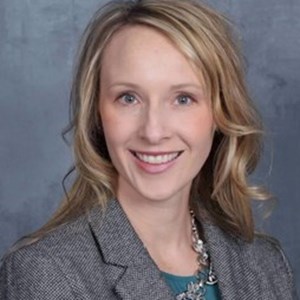
It's Not About Birth Year: The Evolution of Employees from A to Gen Z
Workforce Wake-Up Call: It's Time to Recalibrate our Work World
Alayna Thomas, Magnet Culture
Recovering Out Loud: Breaking Stigma and Saving Lives
Dr. 'Mo' Melissa Dittberner, PhD, CPS, PS, LMT, Straight Up Care

